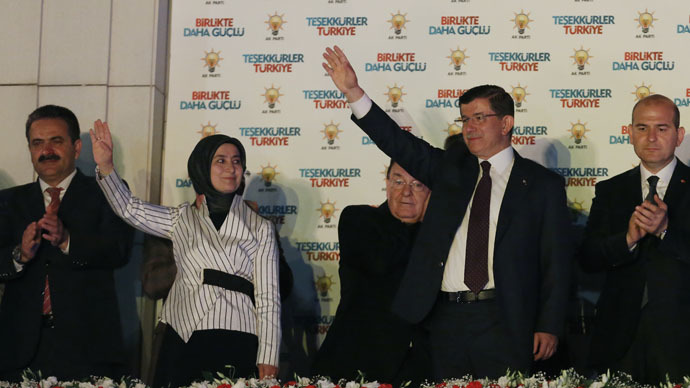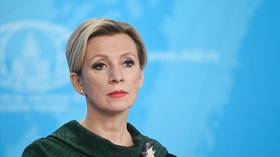Turkish govt resigns, Erdogan seeks to form 1st coalition after 12 yrs majority rule

Turkish President Recep Tayyip Erdogan has accepted the government’s resignation on Tuesday, asking Prime Minister Ahmet Davutoglu to stay on in his post until a new Cabinet is formed.
The prime minister’s resignation is a standard procedure after Sunday’s parliamentary election before the new government starts operating, the Turkish president’s office said.
“The president thanked the government for its work to date. [The acting] Cabinet will continue working until the new government is put together,” Erdogan’s office said in a statement, Tass reported.
After a swearing-in ceremony on June 25, the new Turkish parliament members will have 45 days to agree on the composition of the cabinet.
If they fail to form a government by that deadline, Erdogan has the power to call a new parliamentary election.
After the announcement of the preliminary results of Turkey’s parliamentary election it became clear that Erdogan’s Justice and Development Party (AKP) had fallen short of a majority for the first time in 12 years.
According to Turkey’s NTV channel, AKP claimed some 41 per cent of the votes, a loss of 9 percentage points, which will only allow it to occupy 258 seats in the country’s 550-seat Grand National Assembly.
Erdogan’s party will now face the prospect of entering a coalition with one of the three opposition parties that passed the 10 percent barrier necessary to enter parliament.
The Republican People’s Party (CHP) has preliminarily garnered about 25 percent of the vote (a rise of 4 percentage points), taking about 130 seats in parliament.
The Nationalist Movement Party (MHP) took about 17 percent (an increase of 3 percentage points), claiming a little over 80 seats.
For the time in Turkish history a pro-Kurdish party, the People’s Democratic Party (HDP), has made it into the parliament, with around 13 percent of the vote.
The official results of the election are set to be announced 11 or 12 days after Sunday’s vote.
READ MORE: What the Kurdish minority’s
parliamentary triumph means for Turkey












